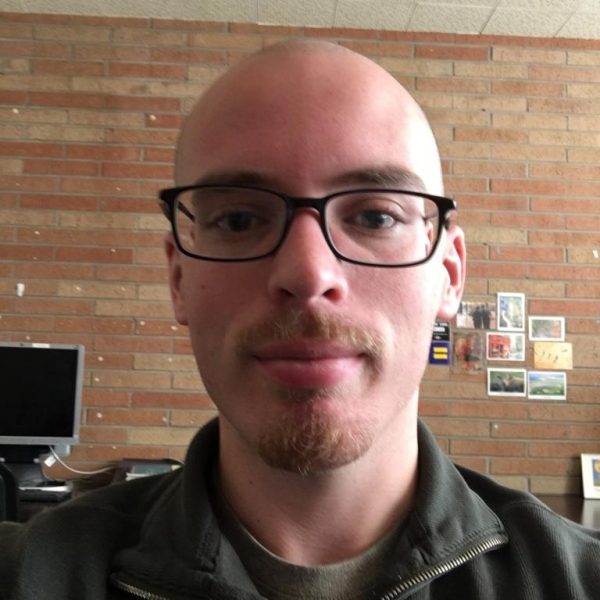James Rankin
MA English: Literature
Graduate Teaching Assistant
I see that you recently attended a conference at Berkeley (San Francisco). What conference did you attend and what did you present about?
I attended ASAP (Association for the Study of the Arts of the Present) hosted by the English department of UC Berkeley. My paper was titled “The People of the Apokalis: The Ecoeschatology of Animal’s People.” Our panel focused on contemporary notions of apocalypse in a post-9/11 world, and my paper in particular explored the notion of “slow violence,” which is the idea of long-term human and ecological damage. The novel Animal’s People is a fictionalized account of the Bhopal disaster in India, which caused many immediate deaths but also created intergenerational health problems such as spinal deformations, pregnancy defects, and other afflictions. In my paper I argue that disasters as “events”—that is, like 9/11, a sudden, cataclysmic event—overshadow the long-term slow violence that is often ignored. The apocalypse is not a single event or point, but is rather an ongoing process for these people.
What drew you to be interested in that specific topic for your paper? Additionally, what motivated you submit a proposal to this conference?
My paper grew out of Ellen Brinks’ Postcolonial and Ecocritism course last fall. I was really interested in thinking about how we might think about ecological disasters, and specifically the apocalyptic imagery that was so heavily associated with these disasters in Animal’s People. I happened across a call for papers for the conference while I had this specific topic in mind, and decided to send in a proposal and begin drafting my paper.
What was the most rewarding about this experience to you? What advice would you give both undergrad and grad students about sharing their work in this type of setting?
For me, it was an incredibly humbling and slightly intimidating experience to be surrounded by world-renowned scholars from institutions like Berkeley and Stanford. Not only was I grateful to share my work in my panel, but I also gained some wonderful insights from the other panels that I attended. The conference was a great networking opportunity too, especially for someone like me who’s considering PhD programs. I would strongly encourage students to apply to conferences – it’s fairly easy; most conferences only require a 300-ish word proposal. Funding opportunities are also typically available as well, so there’s really not much to lose. Conferences are a fantastic opportunity for students to share their work, gain insight from current scholarly work, and meet other scholars in their respective fields.
We usually have people describe Eddy in one word. But since you were at the conference over the weekend, could you explain that experience in one word?
I would have to say “humbling:” it’s quite an experience to share the same stage with PhD students and faculty, all of whom are eager to give me a word of advice or two as a grad student. I’ve also learned quite a lot about the current academic conversation and what some of the “hot topics” are in contemporary literary studies right now. I’m definitely eager to attend more conferences in the future and to keep honing my skills as a scholar.
Is there anything else you’d like to share about your experience at CSU and your experience at the conference?
I would just like to thank all of my professors who have helped me over the past few semesters; like I mentioned earlier, I got the idea for the paper from Ellen Brinks’ class, and I also learned quite a bit about drafting and presenting conference papers from Zach Hutchins. I’m working closely with Leif Sorensen on my thesis right now, and he was also at the conference. Everyone in the English department has been incredibly supportive.
